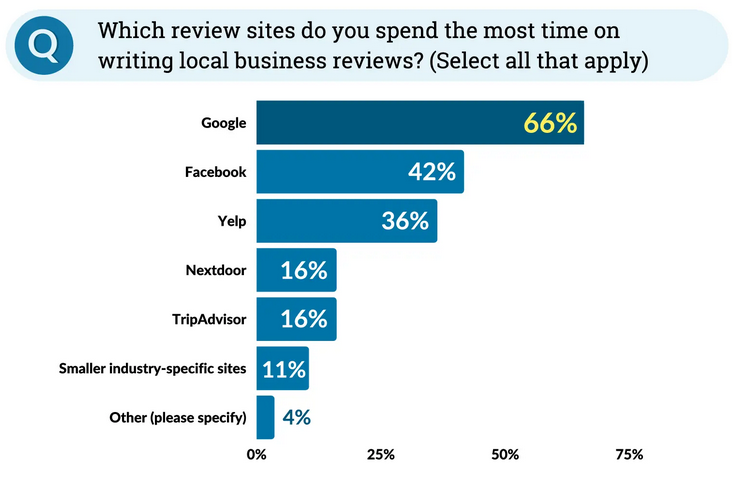Do Online Reviews Matter For a Small Business?
Do online reviews matter? I get a lot of questions about online reviews, both from clients and others.
- Often I’m asked whether online reviews matter at all.
- Sometimes people wonder if customers are likely to write reviews for them.
- And whether review readers trust them.
- And if asking for reviews can hurt them.
- Or whether asking for reviews might encourage negative reviews.
I thought it was time to put together kind of an FAQ about some of the most frequent online review questions I hear.
How important are reviews for my small business?
- People do read reviews.
- Not only do they read them, but they trust them.
- Reviews can be an important search ranking signal, helping move you up (or down) in search results.
Do customers really read reviews?
Moz recently conducted a study that revealed a full 96% read reviews, at least occasionally. In fact, more than half of people read online reviews at least weekly! If half of your potential customers are reading your reviews, obviously that makes your reviews pretty important.

Do people trust reviews?

How many reviews do I need?
How many review stars do I need?

What percentage of customers write reviews?
Website Builder found that 5-10% of customers typically write reviews. Presumably those are customers who’ve not been explicitly asked to write a review. Other studies have found that up to 72% of customers will write a review if they are asked to do so.
How can I get more online reviews for my small business?
The top reason customers don’t review your business is because they forget to, not because they don’t want to. So it’s a good idea to follow up if they haven’t written a requested review within a week .
But don’t try to game the system. Half of consumers lose trust if it looks like owners or employees are reviewing their own business. And many review sites use semantic analysis to identify such self-serving reviews and weed them out.
Which review site is best for a local small business?
Should I ask only for Google reviews?
Absolutely not.
When someone receives a word of mouth referral to you, they almost always look you up online before reaching out to you. Your Google Knowledge Card ought to show up, and your website, of course.
But other sites will show up too, like Facebook, Yelp, Better Business Bureau, YellowPages, Judy’s Book, and others. When they do, you want gold review stars there. The gold color makes the review stars very noticeable, and the more good review stars people see on other sites for you, the more likely they are to trust you.
What sites are good for reviews besides Google?

Should I respond to reviews?
I’ve seen reports that 90% of people are influenced to at least a a moderate by owner responses to reviews. Also, a survey shows that 63% of consumers will update their negative review or low-star rating once an owner responds to resolve their complaint.
What if I get a bad online review?
But a legitimate negative review is an opportunity for you. First it may alert you to something you can improve about your business. and second, it gives you an opportunity to respond — and you should do that quickly. Expressing appreciation for the feedback and demonstrating a willingness to fix whatever went wrong may get the reviewer to revise their review. Even if not, it will reassure readers of your good intentions.
On the flip side, a defensive tone in a review response is likely to make things worse. So always stay positive.
Are reviews only good for search traffic?
That only works if you read them, of course. But you should be doing that anyway so you can respond to them.
Treating all reviews as constructive criticism is key to benefiting from them in terms of how you run your business. And when you respond with appreciation for the constructive feedback, that a less than perfectly positive review create a positive impression in anyone reading it.







